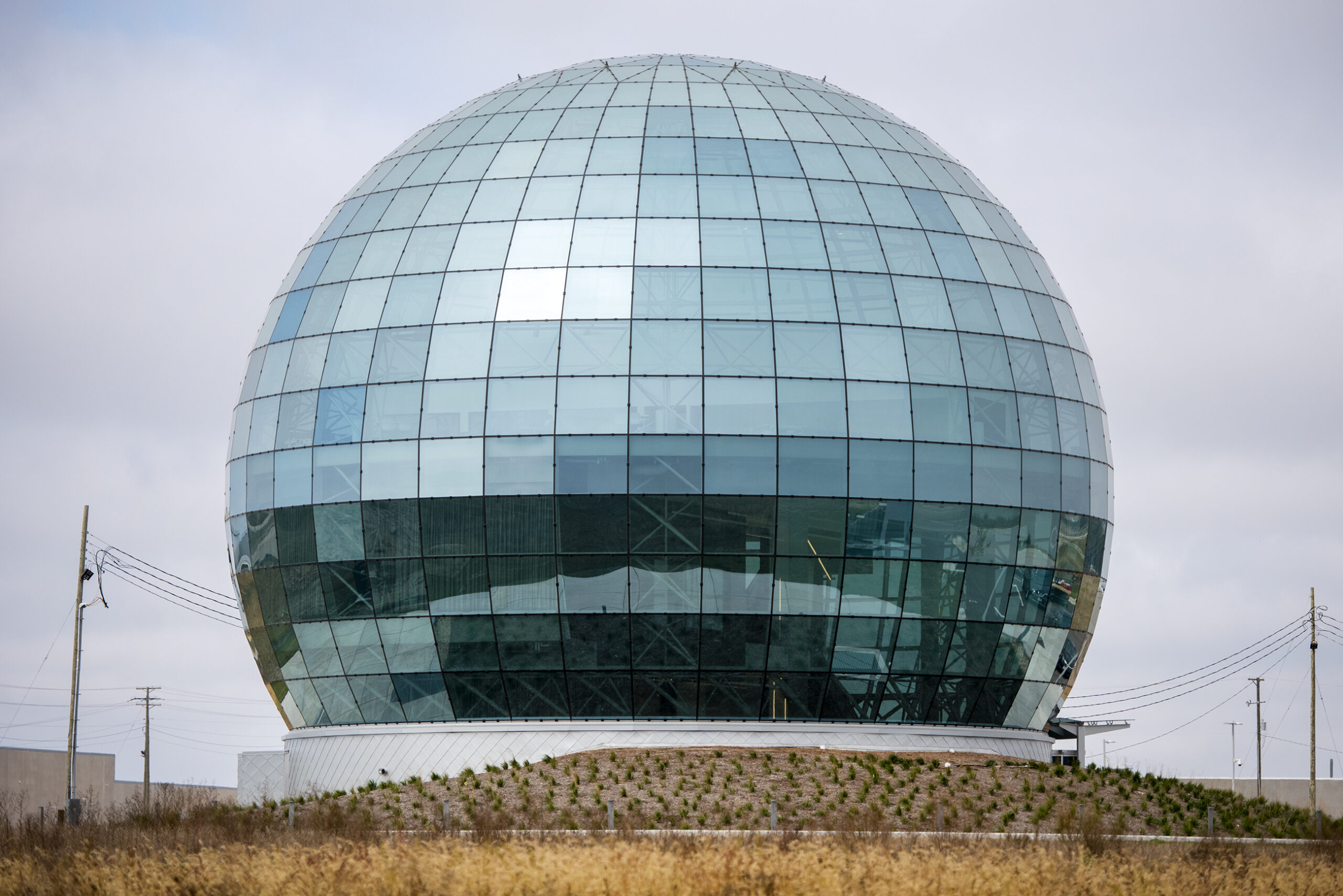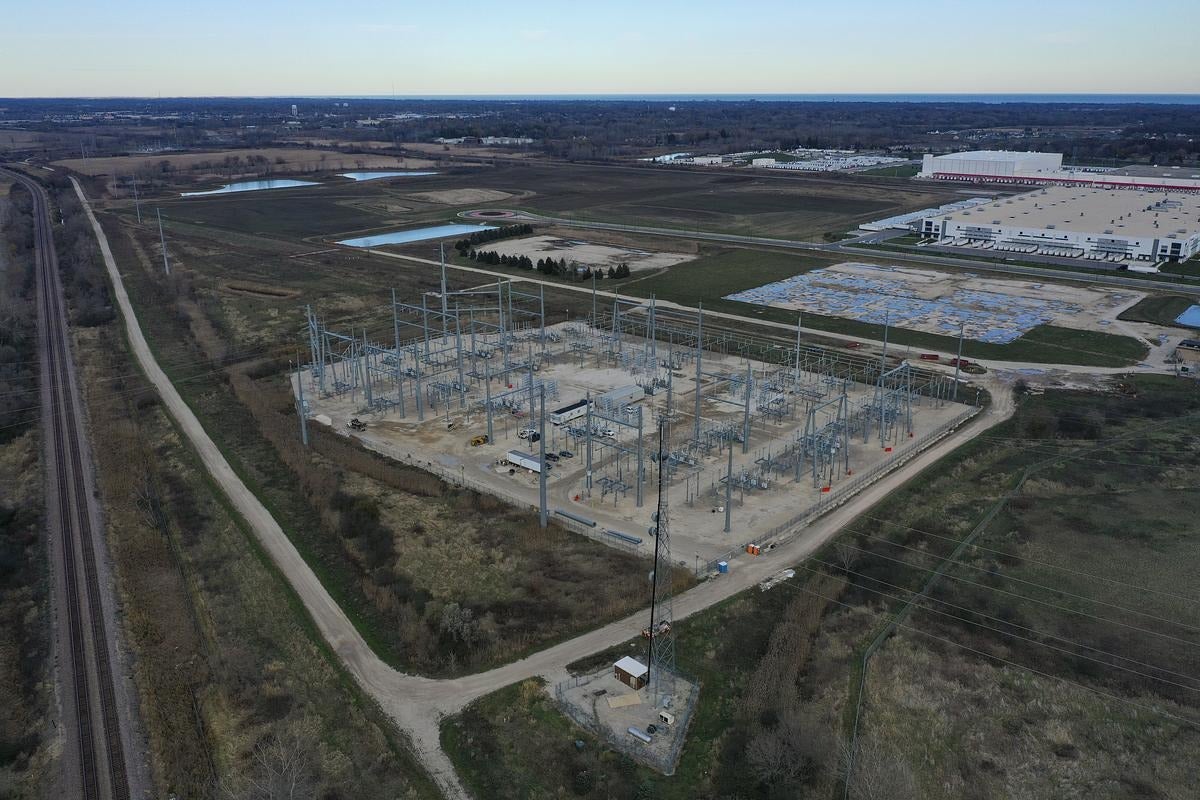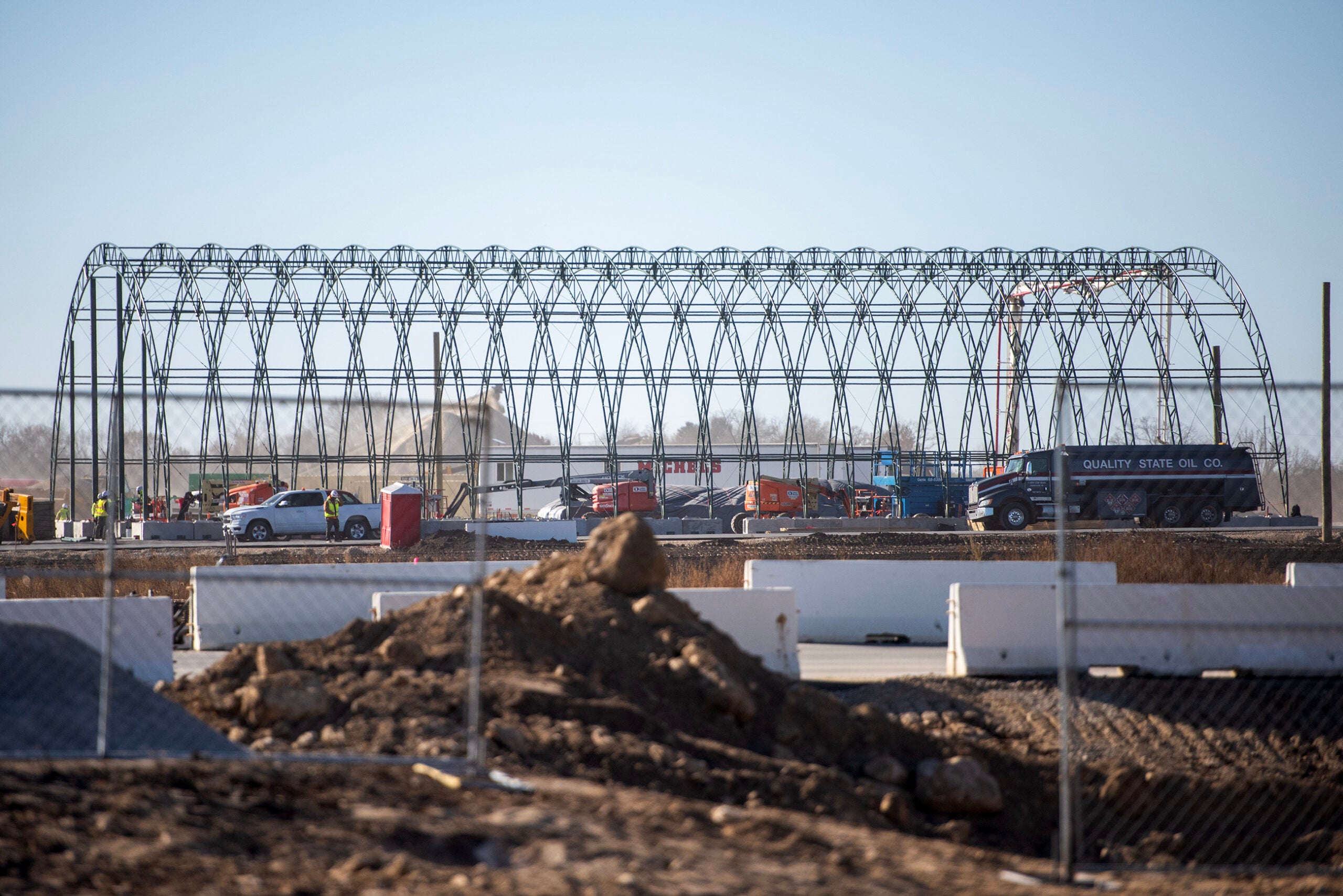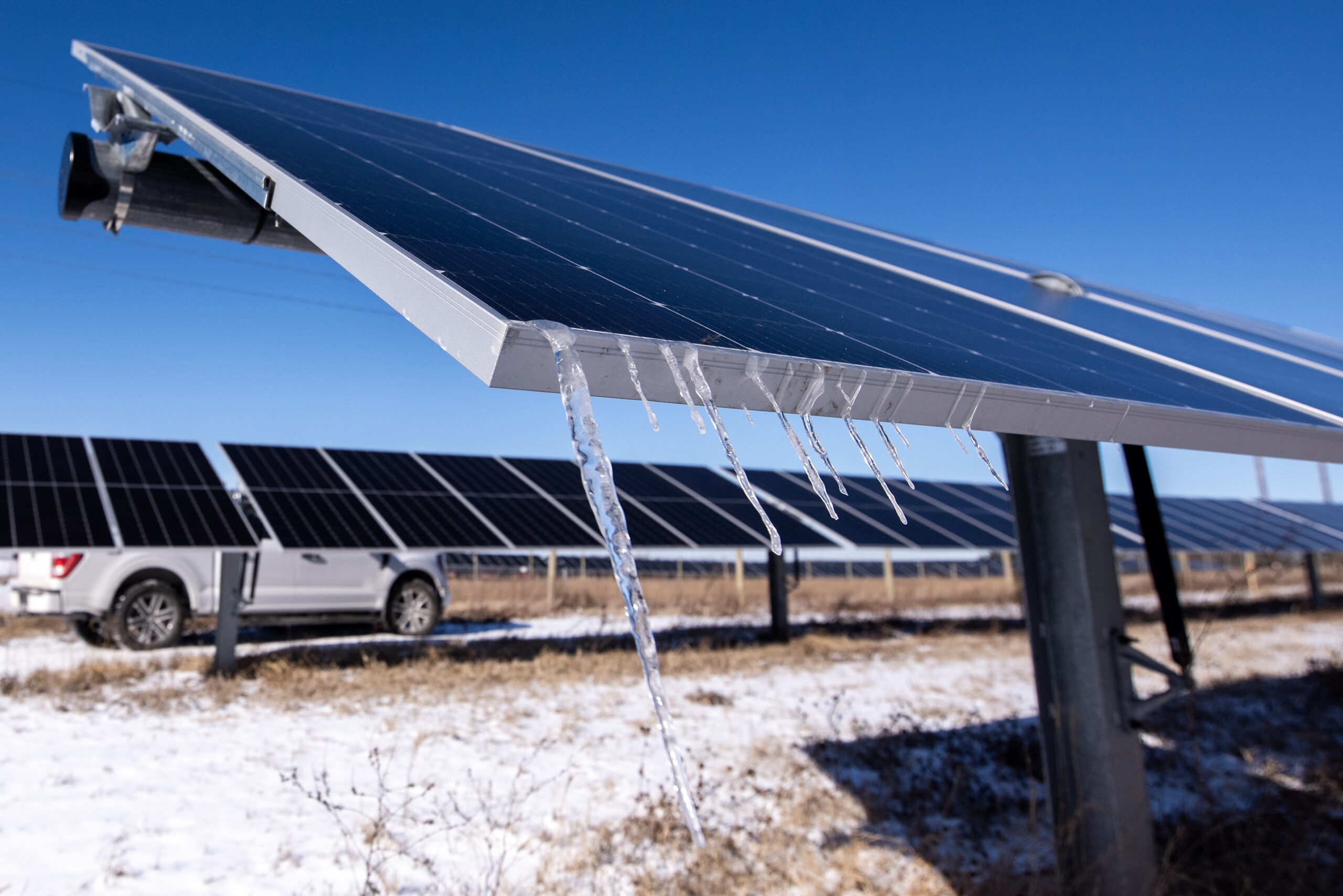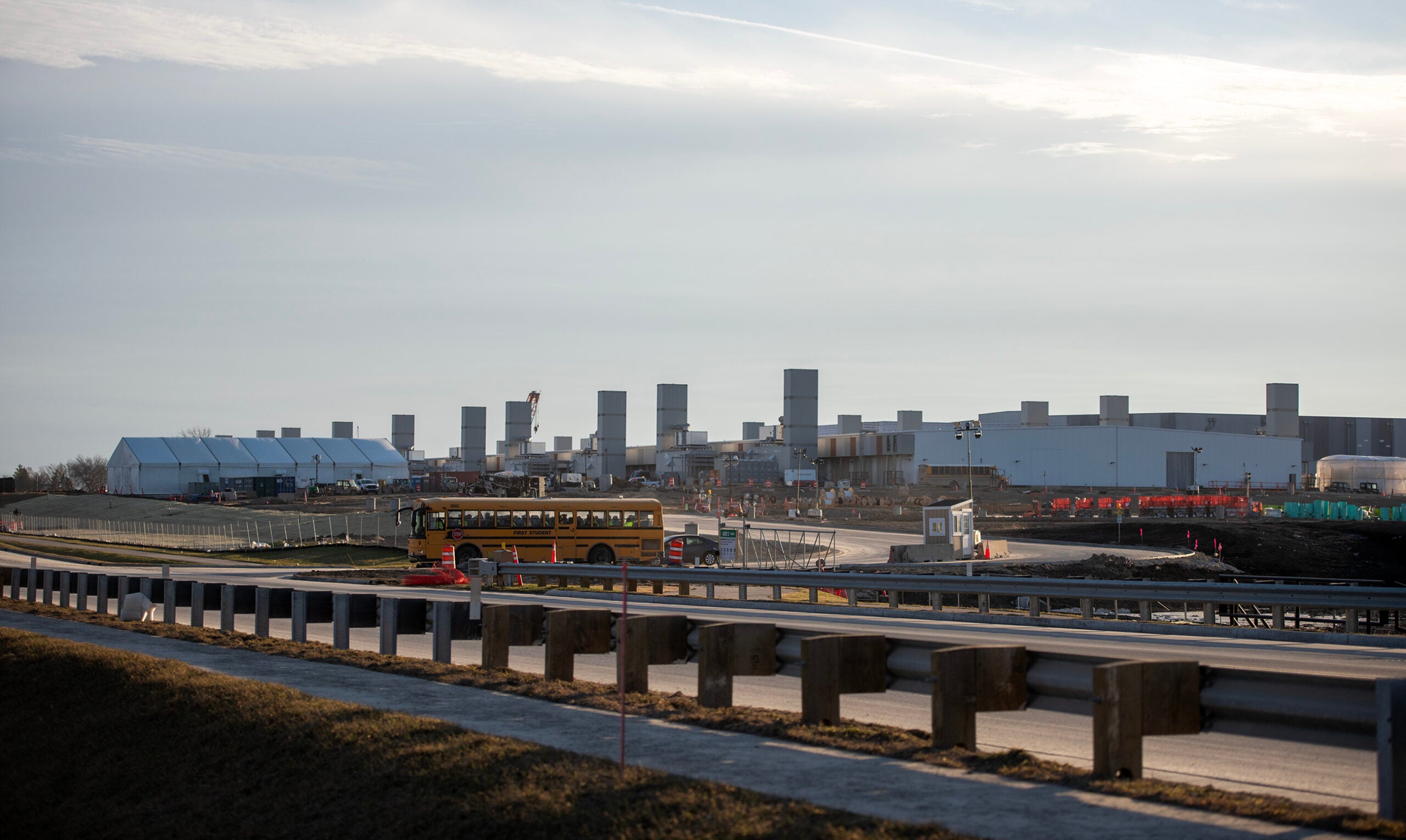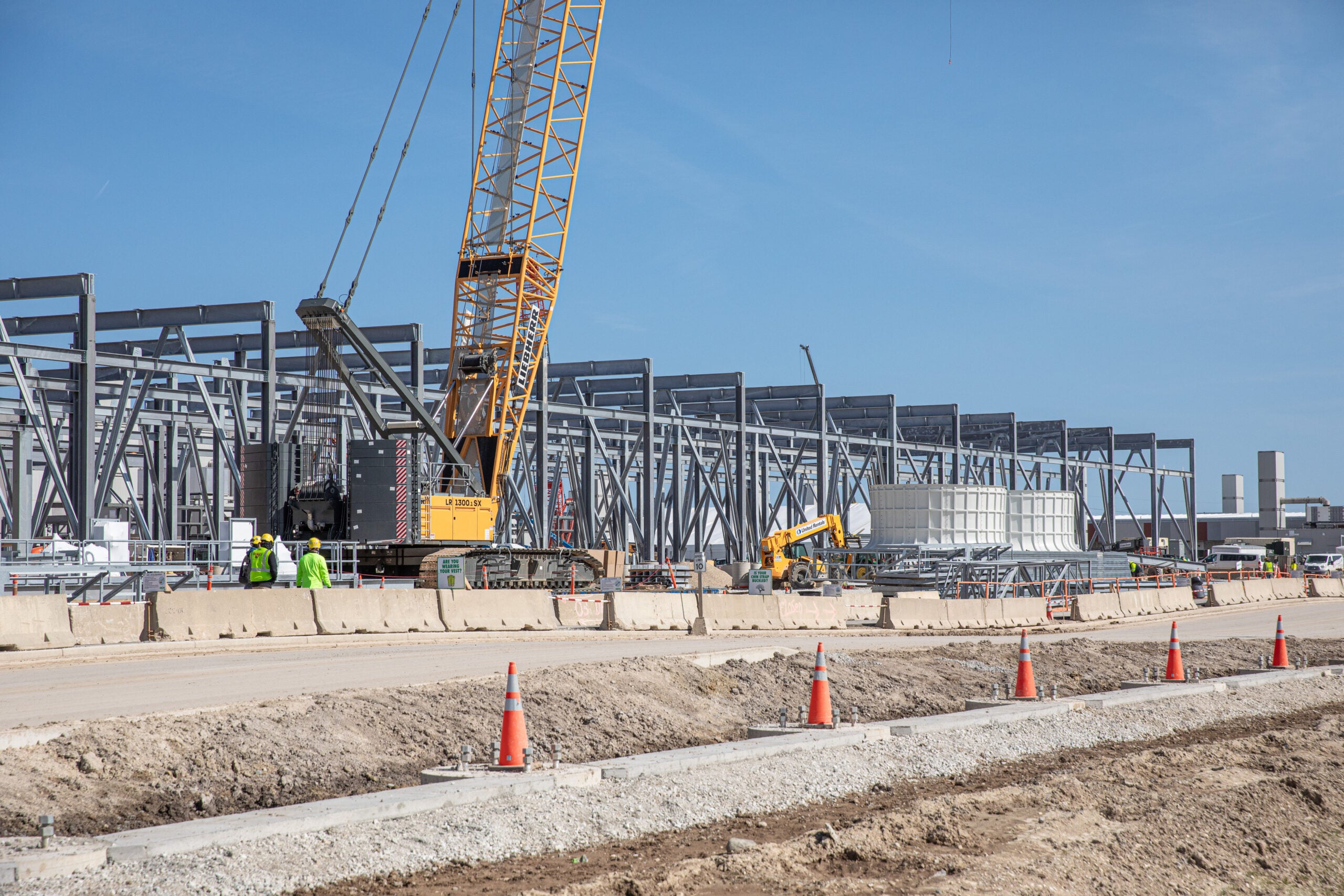We Energies plans to spend $100 million on a distribution project to serve Microsoft’s proposed data center on land initially meant for Foxconn in the village of Mount Pleasant.
But, the project may not need approval by state regulators, due to exemptions created for Foxconn’s failed plans to create 13,000 jobs and produce large flat-screens in southeast Wisconsin. Now, critics are calling on state lawmakers to close those loopholes.
Earlier this month, We Energies sent a notice of exemption to the Public Service Commission of Wisconsin, or PSC, that said it will be installing electric distribution facilities including transformers, breakers, relays and other power related equipment at the site initially meant for Foxconn.
News with a little more humanity
WPR’s “Wisconsin Today” newsletter keeps you connected to the state you love without feeling overwhelmed. No paywall. No agenda. No corporate filter.
Typically, installation of each part of the project would require approval from regulators, but this one may qualify for an exemption — thanks to a law passed in 2017 to support Foxconn’s Mount Pleasant project, the letter to the PSC says.
The law that established an Electronics and Information Technology Manufacturing, or EITM, Zone for Foxconn included a provision that makes utilities exempt from obtaining PSC approval for construction projects that primarily serve new customers within the zone.
“Projects that meet the requirements of this statute would qualify for an exemption,” PSC spokesperson Meghan Sovey said in a statement. “The PSC is currently reviewing this request and will follow up with We Energies if more information is needed to make this determination.”
We Energies plans to start construction on the project by June 2024 “to meet the customer’s electric service needs,” the utility’s letter to regulators said.
In a statement, utility spokesperson Brendan Conway said the distribution project will support Microsoft’s planned $1 billion data center “in the immediate term,” and also support continued growth throughout the Interstate-94 corridor.
“The investment will help ensure that this growing region will have the necessary infrastructure to support new business investment, job growth and expanded housing,” Conway said. “The I-94 corridor remains one of the fastest growing areas of the state.”
According to the U.S. Department of Energy, data centers are one of the most “energy-intensive” types of buildings, as they consume “10 to 50 times the energy per floor space of a typical commercial office building.” In fact, the agency said data centers account for around 2 percent of all U.S. electricity use.
During a recent earnings call, We Energies executives said Microsoft’s data center will factor into the utility’s next five-year capital plan.
Microsoft’s Mount Pleasant development will include a new 26-acre electrical substation and power lines — built by We Energies and American Transmission Co. — to provide at least 752 megawatts of power, according to a document filed with the Wisconsin DNR. It will also link to an existing substation built for Foxconn’s initial plans for the campus.
Conway said the work discussed in We Energies’ notice of exemption to the PSC does include investments it’s making in the new substation.
“We will continue to work with the PSC and all stakeholders on this important project,” he said. “The cost of this work will be recovered through distribution rates and Microsoft will pay its share of the costs.”
In 2018, the PSC approved allowing American Transmission Co. to construct new electric transmission line infrastructure to support Foxconn. That project cost nearly $113 million and came online in 2020, according to a document the utility filed with regulators.
Critics call on state lawmakers to close Foxconn-related regulatory exemptions
Critics said they’d like regulators to look at the $100 million distribution project for cost savings opportunities to ensure the project’s costs don’t hurt ratepayers.
Tom Content, executive director of the Citizens Utility Board of Wisconsin, said the PSC has auditors, engineers and analysts who review applications to ensure projects are in the public interest and that they’re cost-effective for customers.
“We have a PSC to make sure there’s proper oversight on the type of spending that’s being proposed,” he said. “In this case, it may be a fully appropriate project to serve a giant data center. But we don’t know that because it won’t have to go through that process.”
Former state Rep. Gordon Hintz, D-Oshkosh, said Gov. Tony Evers scaled back the state’s financial contract with Foxconn after it was clear the company’s initial plans in Mount Pleasant wouldn’t come to fruition. But, he says, the regulatory exemptions provided in the EITM zone legislation remain.
“It’s worth reconsidering and taking a look at the things that were in there — especially some of the environmental protections that were waived — given that we’ve got a project that is going to be substantially different than what the law was written for,” Hintz said. “That being said, I think we all want to see something there but you would hate to see what was in the law being taken advantage of.”
State Sen. Robert Cowles, R-Green Bay, voted against the EITM zone bill in 2017. He said the proposed distribution project is “a great reminder that there were some problems in that bill.”
“The utility is notifying folks that they can just do this $100 million (project) without any review,” Cowles said. “Now, I know what’s in the law, but it’s outrageous. Ratepayers need to be considered.”
If the PSC were to review the project, Cowles said regulators could look for ways to cut costs while still supporting Microsoft.
“It’s a wonderful company to have in our state, and I think we want them to have the fairest electric cost as possible,” he said. “That’s why I would argue that this needs to go through the PSC.”
Cowles said the Legislature needs to change the law, calling the 2017 legislation a “mistake.”
“This piece of the Foxconn issue was sort of forgotten, and it hadn’t been utilized until now as far as I can tell,” he said. “Now that we’re looking at this — and with all the high electric bills that we’re all facing across the state — this would be a good time for bipartisanship. This would be a good time for the governor to say, ‘Yeah, put it on my desk, and I’ll sign it.’”
Editor’s note: The Citizens Utility Board of Wisconsin is an underwriter of Wisconsin Public Radio.
Wisconsin Public Radio, © Copyright 2025, Board of Regents of the University of Wisconsin System and Wisconsin Educational Communications Board.

